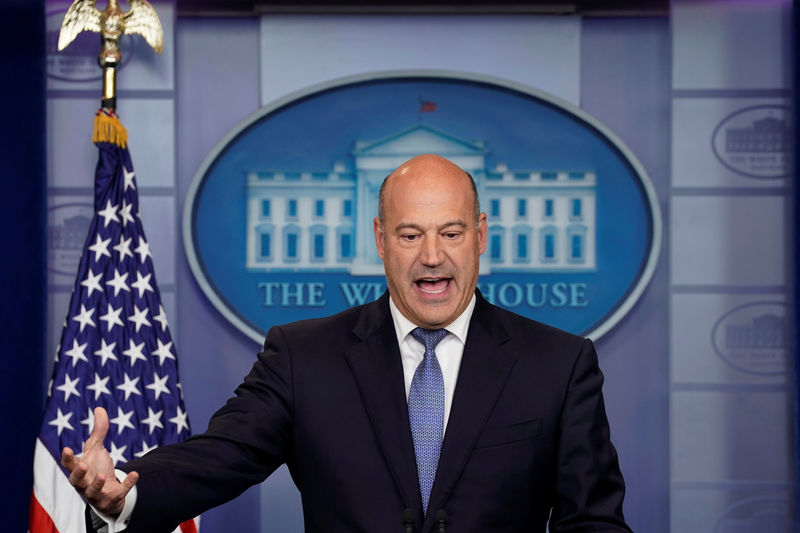By Pete Schroeder
WASHINGTON (Reuters) - A top White House economic adviser said Monday there was "real agreement" in Congress to allowing smaller banks to avoid stricter regulatory scrutiny.
National Economic Council Director Gary Cohn told bankers gathered in Chicago that he was encouraged by efforts to overhaul financial rules in Congress, despite little sign of outward progress.
In particular, he expressed confidence that Congress would ultimately alter the 2010 Dodd-Frank financial reform law to raise the caps that determine which big banks garner tougher scrutiny.
"We do think there is some real agreement on raising levels," he said at an American Bankers Association conference.
Cohn said there is "an enormous amount of traction" in raising the $50 billion threshold that defines a bank as a "systemically important financial institution," subjecting it to stricter oversight by the Federal Reserve.
Cohn said he would favor any level above $200 billion, or altering the threshold so that instead of an asset level, banks are evaluated based on the risk levels of their activity and regulated accordingly.
However, whether Congress can enact such a change remains unclear. Legislation passed in the U.S. House would eliminate regulators' ability to subject systemic firms to tougher rules, but that bill is not expected to garner sufficient support in the Senate. The House is also considered another bill that would replace the $50 billion threshold with one aimed at monitoring bank activity rather than asset size.
Meanwhile, bipartisan leaders of the Senate Banking Committee continue to engage in private talks over a more modest set of reforms to banking rules, aimed primarily at relieving smaller banks but that could include raising or altering that threshold. No legislation has yet been produced, but Banking Chairman Mike Crapo and Senator Sherrod Brown, the top Democrat on the panel, remain in negotiations.
